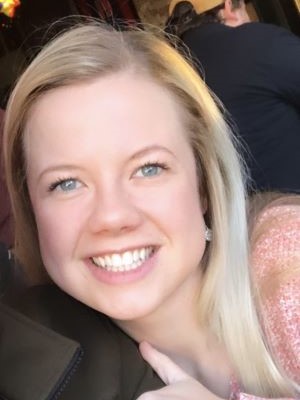
Katelynn (Tyrna) Bujaki
RADIOLOGIC TECHNOLOGY
Graduated in 2015
Interventional Radiology Supervisor, Henry Ford Hospital
Q: Why did you choose WSU?
A: Wayne State initially sparked my interest because of the wide range of health sciences programs they offered. My goal to become a radiologic technologist while completing a bachelor’s degree program was only going to be reached at Wayne State. Once I started on campus and all the extra programs offered to get students involved while completing my general education course made me even prouder to be a Warrior.
Q: What inspired you to pursue radiologic technology?
A: Health and science have always been an interest of mine. My first anatomy and physiology class in high school increased my interest in becoming a health care worker. In my co-op class during high school, I worked in a local radiology clinic helping with procedures and developing films in their dark room. This increased my excitement when I began my journey at Wayne State after being accepted into the Radiologic Technology program.
Q: Who were your most memorable instructors?
A: Kathy Kath and Sarah Borland. They were wonderful teachers who both worked in the field, and they provided guidance to students as they entered the workforce. Their expectations of us helped prepare us to become the best rad techs. We also made many fun memories together through adopt-a-family projects, fun learning opportunities and a student conference in Florida where we were introduced to the global world of radiology.
Q: What was your most challenging class?
A: Radiology Biology. This was in our first semester of the program. Because of the transition into the program and being so green to the radiology world, I remember being nervous that I was not going to make it through the program.
Q: Share some reflections about your time at Wayne State:
A: I received the whole college experience at WSU. I participated in many on-campus activities: study abroad in Paris, Greek life and Alternative Spring Break two years in a row. When I was accepted into the program, I didn't realize the friends I was going to make. I am still in contact with many of my classmates and even work with some! I ended up crossing paths with many people I met at Wayne State during their time as residents, and some I even worked alongside in the radiology field as physician/technologist coworkers. Go Warriors!
Q: In your opinion, what is one of the biggest changes that has occurred in your profession since graduating?
A: As technology and health care advance, our jobs in medicine are everchanging. The constant need for our patients to have the best and most advanced tools is important to their diagnosis and their treatment options. It’s important to realize that when entering the medical field, we sign up for lifelong learning in order to stay relevant for our patients.
Q: Share a career highlight or summary:
A: I love what I do. I feel like I make a huge difference in my patients’ and their families’ lives. I worked mostly as a Interventional Radiology technologist, and in this field I have assisted in stroke intervention that produces instant results for our patients. I also assist in cancer treatments in a number of different procedures. I have worked on calls in the middle of the night, assisting in lifesaving procedures. I am very proud of what I have done in my years as a radiologic technologist, and now I am the supervisor of Interventional Radiology at a level-one trauma center in Detroit.
Radiologic Technologists are health care professionals who administer prescribed radiation to help diagnose medical conditions. They perform procedures such as X-rays, CT scans and MRI exams. The Eugene Applebaum College of Pharmacy and Health Sciences Radiologic Technology program was Michigan’s first accredited bachelor’s degree program in the field. The application deadline is Dec. 15.
An anchor in urban health care
The Eugene Applebaum College of Pharmacy and Health Sciences is built on more than 100 years of tradition and innovation in the heart of Detroit. We have grown deep roots in our city, harnessing its powerhouse hospital systems and community service organizations as vibrant, real-world training grounds for students, with an ongoing focus on social justice in health care. And our research at all levels – from undergraduates to veteran faculty members – translates into creative solutions for healthier communities.
Wayne State University is a premier urban research institution offering approximately 350 academic programs through 13 schools and colleges to nearly 24,000 students.